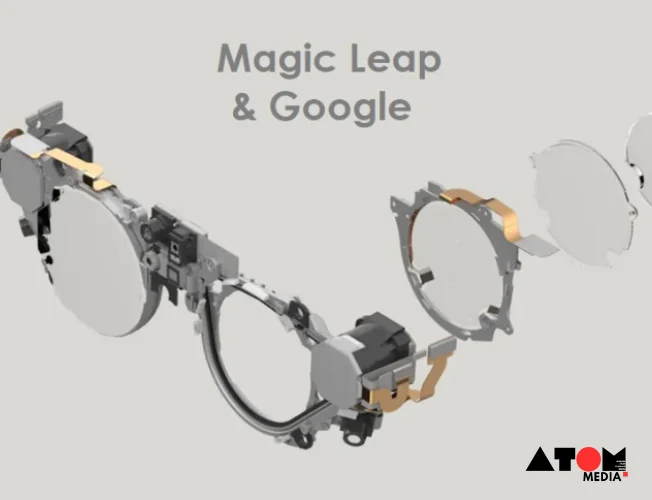Tech titans Magic Leap and Google have announced a strategic technology agreement that could spark a new wave of activity in the augmented reality (AR) market. The partnership unites Magic Leap’s hardware expertise with Google’s potent software platforms and signals Google’s possible re-entry into the AR sector. This collaboration has the power to completely transform the way we engage with the digital world and integrate it with our real-world surroundings.
A History of AR Exploration
Augmented reality has been capturing the interest of tech enthusiasts and businesses for more than ten years. With the launch of Google Glass in 2012, one of the first businesses to enter the AR market was Google. These smart glasses promise to overlay digital information onto the actual world, offering a glimpse into a future when technology smoothly merges with our daily life. However, due to backlash over its awkward design and privacy issues, Google Glass was eventually discontinued in 2015.
Magic Leap: A Leader in AR Hardware
Magic Leap emerged as a prominent player in the AR scene, raising significant investment and generating excitement with its futuristic AR headset prototypes. However, the company faced challenges in finding a mainstream consumer market for its high-end devices. Recently, Magic Leap shifted its focus towards enterprise solutions and licensing its technology to other companies.
A Strategic Alliance
Google and Magic Leap’s recent alliance makes use of each company’s advantages. Magic Leap provides expertise in the design and manufacturing of AR hardware, and Google offers its extensive software knowledge and well-established developer platforms. This combination has the ability to overcome the barriers that both companies encountered independently.
What to Expect from the Partnership
The cooperation announcement suggests the creation of next-generation augmented reality experiences, while specifics are still lacking. Julie Larson-Green, the chief technology officer of Magic Leap, emphasizes the possibility of “cool AI tie-ins” with augmented reality, maybe alluding to Google’s advances in AI. Google unveiled Project Astra, an AI agent that could overlay data and translate languages in real-time through augmented reality glasses, during its most recent developer conference. This capability complements the capabilities that Meta is developing for its Ray-Ban smart eyewear. The collaboration between Google and Magic Leap sparks rumors of a possible Google Glass comeback. Google’s earlier attempt to enter the consumer AR wearables market was shelved due to privacy issues and design constraints. But technological developments and a fresh emphasis on user experience may open the door for an improved version of AR glasses.
The Road Ahead for AR
The Google-Magic Leap alliance gives the augmented reality business new life. Although the precise goods and experiences that result from this partnership are still to be determined, it represents a noteworthy advancement in technology. Google and Magic Leap have the ability to develop immersive augmented reality experiences that blend in seamlessly with our everyday lives by fusing their hardware capabilities with potent software platforms. This partnership could usher in a new era of AR adoption, finally fulfilling the promise of a technology that has captivated the tech world for years. It’s important to acknowledge the competitive landscape within the AR market. Meta (formerly Facebook) remains a major player with its Reality Labs division dedicated to developing AR and virtual reality (VR) technologies. Apple is also rumored to be developing its own AR glasses, codenamed “Nreal.” These companies, along with other emerging players, will all be vying for market share as AR technology continues to evolve.
The Future of Augmented Reality
The collaboration between Magic Leap and Google is a big step forward for the augmented reality sector. Together, these tech behemoths have the ability to transcend previous obstacles and produce genuinely revolutionary augmented reality experiences. It is unclear if this will result in an extensively used consumer product, such as a new iteration of Google Glass, or will concentrate on business applications. But one thing is certain: Google and Magic Leap’s partnership represents a fresh dedication to the development of augmented reality.
Read more: Marketing News, Advertising News, PR and Finance News, Digital News





